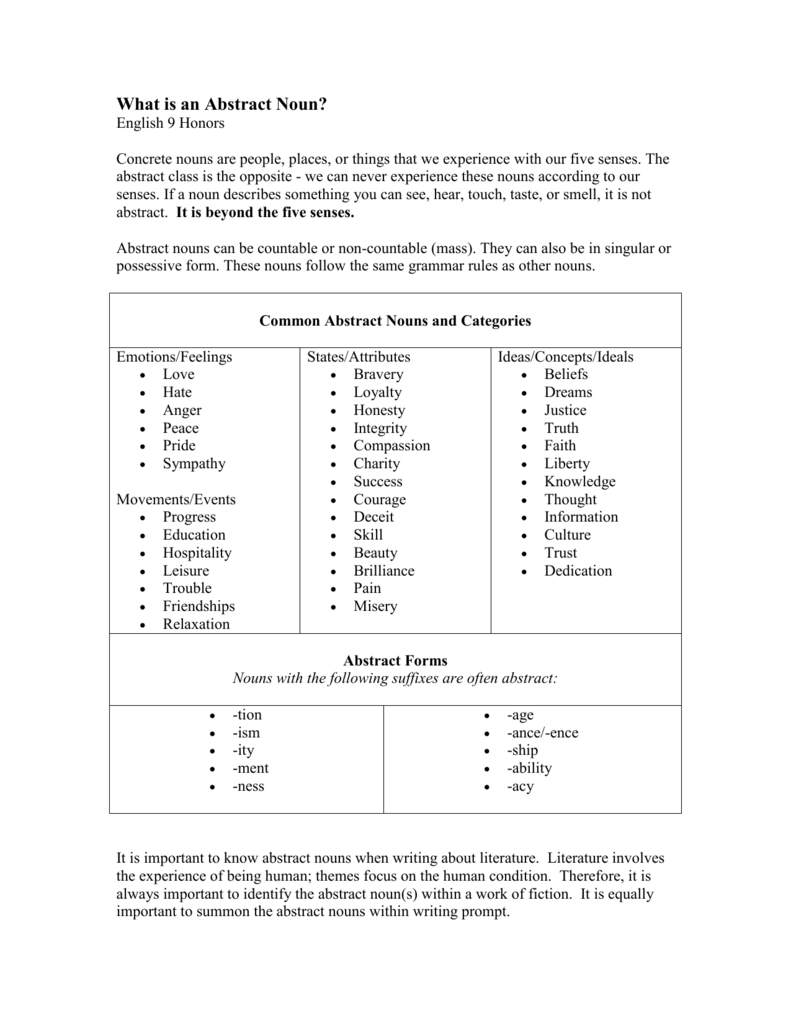

For example, the adjective cute takes the suffix – ness to make the abstract noun cuteness. If a word uses a suffix to turn itself into a noun, it’s an abstract noun. Time: nouns that relate to time-both common, such as minute and year, and proper, such as Wednesday and Julyĭifferentiating between abstract nouns and concrete nouns isn’t always easy, but there is a quick trick that can help.States of being: nouns that describe a condition or way of existence, such as chaos and luxury.Philosophical concepts: nouns that describe complex ideas of logic, principle, or ideals, such as morality and socialism.Characteristics: nouns that describe a personality trait, feature, quality, virtue, or vice, such as bravery and elegance.Emotions/feelings: nouns that describe a mental state or mood, such as anger and comfort.For example, intelligence and education are abstract nouns because they’re immaterial concepts (you can’t touch education), but place names such as schools and universities are concrete nouns because they can be perceived through our senses.Ībstract nouns have many different categories, but some of the most common include these: These are ideas, emotions, and other intangible things that exist in our minds instead of in the physical world. Material things: nouns that represent things we can perceive through the senses-not only physical objects, such as furniture and statues, but also things like dances and noiseīy contrast, abstract nouns are nonphysical things that cannot be sensed.Places : nouns that relate to locations, both general ( city, mountain ) and specific ( Lagos, Mount Fuji ).Living things: nouns that relate to people, animals, plants, and other organisms, both general ( humans, trees ) and specific ( Billie Eilish, California redwood ).Specifically, concrete nouns consist of these: Even imaginary or fantasy things, such as unicorns and the character Katniss Everdeen, are concrete nouns-but only if they represent something that can be sensed, even if only in fictional writing.

Microscopic things, such as bacteria and atoms, are also concrete nouns because they exist in the physical world. Even invisible things, including air (which can be felt) and music (which can be heard), are concrete nouns. Most nouns are concrete nouns-for example, rocks, butterflies, grandmothers, and the Great Sphinx of Giza. Grammarly helps you communicate confidently Write with Grammarly What are concrete nouns?Ĭoncrete nouns describe physical things that can be sensed: seen, touched, heard, smelled, or tasted.


 0 kommentar(er)
0 kommentar(er)
